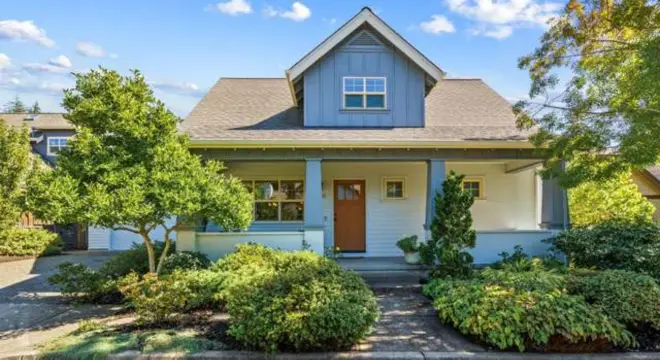Don’t Do These 8 Things When Buying and Selling a Home Together
It is already difficult to buy or sell a house. But doing both at the same time? That’s where most people go wrong, and it’s a big deal. People get enthused about a new house, jump in too quickly, and then end up with two mortgages, a hasty sale, or worse, a lot of remorse. I’ve seen it happen over and over.
The truth is that most online guidance makes this process seem too easy. They’ll give you basic advice like “don’t overprice” or “stage your home,” but they rarely talk about the timing traps, emotional stress, or hidden fees that even smart homeowners don’t see coming. If you’re navigating a purchase while juggling paperwork, don’t miss our guide on Home Buying Made Simple: 16 Essential Docs (+ 6 You Should Never Sign)—it breaks down exactly what to look out for, especially if you’re buying and selling at the same time.
That’s why I made this guide.
There are some mistakes you can’t afford to make, either financially or emotionally, whether you’re moving up, down, or just attempting to make a clean break. In this post, I’ll show you the eight most common (and expensive) mistakes people make when buying or selling a home and how to avoid each one without losing your mind.
These aren’t just the same old tips you’ve read on a million blogs. I’ve read Reddit threads, talked to experts, and looked at real-life case studies, as well as advice from experienced agents, not simply influencers. Let’s start right here if you want to move intelligently and not sorry.
Before we get started, I have a quick question for you:
Have you ever felt absolutely overwhelmed by the thought of purchasing or selling a home? What was it? I’d love to hear it! Please leave a remark.
Mistake #1 – Misjudging the Timing: Buying Before Selling (or Vice Versa)
A lot of folks get this one wrong. You get enthusiastic about your dream home, make an offer, and then you have to hurry to sell your present property. Or you sell first, believing everything will go easily, but then you end up stuck, renting for a short time, or moving in with family while you look for a new place.
The difficulty is that real estate timelines don’t always work out. People who want to buy back out. Closing takes longer. Your present home might not sell as quickly as you thought it would. And if you have two mortgages at once, those weeks might eat up all your money.
I have seen clients sell in a frenzy merely to get out of a tough spot. Some people bid more than they should have on the new place because they felt hurried. You lose money and peace of mind either way.
What people usually tell you to do is:
Most publications encourage you to “plan ahead” or “coordinate your closings,” which sounds good in theory. But the key to success is knowing what your options are:
- Add a house sale contingency to your purchasing offer.
- Look into bridging loans to help you pay for both homes for a short time.
- Or even rent-back deals that let you stay in the house you sold while you buy a new one.
These tools are useful, but not many homeowners know about them, and even fewer brokers will tell you about them unless you ask.
If your market is hot, you might be able to sell with leverage and get more time to breathe. If it’s soft, though, you might want to list first, even if it means waiting for your next step.
You can’t just guess when to do it. You should have a plan A, B, and sometimes C.
It’s your turn: Are you planning to buy first or sell first? What is making you make that choice?
Mistake #2 – Skipping a Thorough Inspection (and Regretting It Later)
You know what? When you finally find “the one,” it’s easy to want to rush things. You can immediately see your couch beside the window because the house looks tidy and the paint is new. But not doing a proper inspection? That’s like getting married without even talking to the other person.

A buddy of mine bought a house that looked wonderful, but a year later the sewer line broke. To fix it, it costs $25,000. They missed the sewer scope during the inspection, thus no one had seen it. And let me tell you, that repair cost them a lot of money for months.
Inspections aren’t just paperwork; they’re protection.
Most people primarily worry about problems with the roof or flaws in the foundation. But what about:
- Wiring that can’t handle new appliances?
- Old HVAC units that stop working the next summer?
- Mould that is hidden in walls and costs thousands to get rid of?
And what about sellers? You’re not off the hook either. If you don’t have a pre-listing inspection, you could have bad surprises later, such purchasers bailing out when they find problems you didn’t know about.
What the other blogs don’t always say:
They all talk about inspections, but not many say which ones to get and why:
- Scope of sewer lines, especially in older neighbourhoods
- Testing for radon (required in many states but often not done)
- Checks for chimneys and fireplaces
- Reports on termites and other wood-destroying organisms
- Tests for drainage and grading
This is where it hurts the most: In hot markets, some buyers skip inspections just to get the sale. It’s dangerous, so don’t do it unless you’re ready to pay for big repairs right away. Always.
For buyers entering the 2025 market, we’ve outlined key risks and inspection tips in our latest post on Buying a Home in 2025—it’s a must-read if you want to avoid surprise costs and inspection regrets.
Quick fix: Tell your agent to set up a full examination and add more scopes if necessary. If you’re selling, do it before you list and fix anything major first. This will help you set the correct price and bargain better.
If the house feels like a money trap now, it will only become worse if you move in.
Let’s talk: Would you ever give up a home inspection to win a bidding war? Or is that a dealbreaker for you?
Mistake #3 – Pricing Your Home Wrong (Too High or Too Low)
This one hurts a lot since it hurts your money and your progress.
If you set the price of your home too high, it won’t sell. Weeks go by, interest decreases, and consumers start to think, “What’s wrong with it?” Then you lower the price, and all of a sudden you’re in a weaker position to negotiate. On the other hand, if the price is too low, you lose a lot of money that you probably need for your next place.
Here’s the problem: a lot of homeowners think they know how much their home is worth because of a Zestimate or what their neighbour sold for. But pricing is more than just square footage. It’s about time, the tone of the market, competition, and how the property is presented.
They tell you to “talk to an agent” or “look at comps,” but they don’t often talk about the more advanced methods that experienced sellers utilise, such as:
- Checking what hasn’t sold (unsold listings = things that turn off buyers)
- Watching open homes in your region to see how buyers react
- When you list your property (listings at the beginning of the week attract more attention)
- Using price psychology to create urgency (for example, $499K vs. $505K)
I previously worked with a couple that charged $15,000 more than the market price only to “leave room for negotiation.” That’s a bad idea. They had to lower it twice, and purchasers could tell they were desperate. We put it back on the market at a better price later and sold it quickly, with better offers.
If you’re buying, keep in mind that homes that cost too much often stay on the market longer. Don’t think they’re superior; occasionally the merchant just made a mistake.
Your move: Get three agent valuations before you list, not just the one your relative suggested. Look at how they set their prices. Ask why if they are all so different.
Quick question for you: Would you rather list a little low and start a bidding battle, or aim high and negotiate down?
Mistake #4 – Ignoring Curb Appeal and Skipping Proper Staging
To be honest, purchasers decide if they want to buy a house before they even go in. If your home seems dirty, cluttered, or too much like you, they’ll stop thinking about it before they even see the kitchen.
Curb appeal isn’t only about cutting the grass or adding flowers. It’s about making that emotional connection right away: “This feels like home.” And what about staging? That’s when you stop showing them your house and start helping them picture living in theirs.
This is where most sellers go wrong:
They focus too much about upgrades and forget the basics. You don’t have to tear down the bathroom or renovate the kitchen. But you have to:
- Clear off the counters
- Take down personal pictures and garish decorations.
- Use mirrors and neutral lighting to make the room feel bigger.
- Fix doors that squeak, light bulbs that are burned out, and anything else that seems “off.”
What a lot of bloggers don’t say is that staging is more about flow, space, and light than it is about furniture. A home that is messy but has furniture in it feels smaller. Changing the furniture around in a tiny room may make it look twice as big.
RealSimple made an excellent point: a home that is clean, uncluttered, and well-lit may still feel “move-in ready,” even if it is old. The Sun (UK) also said that simple things, like a wardrobe that is too full or a welcome mat that is worn out, might turn buyers off faster than old tiling.
I always tell people to get rid of at least 30% of their things before showings. Put it away, pack it up, or hide it. More is less.
And sellers, please don’t forget to take quality images. Your listing online is the first thing people see. Bad lighting, weird angles, or pictures taken with a phone can make something look like it’s worth thousands of dollars less.
Don’t be deceived by staging wizardry if you’re buying, either. Don’t only look at the nice blankets and gleaming equipment. Open the drawers. Look beyond the curtains. It’s a play, and you need to see what’s going on behind the scenes.
Step to take: Go outside. Would you stop and look if this house showed up on Zillow? If not, correct that before anyone comes in to buy.
What is the most off-putting thing you’ve seen while looking at a house? Strange smell? Mess? Paint that glows? Tell me—I’ve probably seen worse.
Mistake #5 – Trusting the Wrong Real Estate Agent (or Trusting Them Too Much)
This one is hard. Sometimes the problem isn’t hiring an agency; it’s choosing one because of a referral, a smiling photo, or because they “felt nice.” The truth is? You could lose tens of thousands of dollars without even knowing it if you have a bad agent.

I’ve seen agents pressure buyers into purchases only to meet their goals. Or tell you to lower the price way too soon—not because it’s the correct thing to do, but because they’re sick of dealing with your listing. And what about hot markets? Some people employ faux urgency, “phantom” offers, or pressure you to skip the inspection only to close quickly.
News.com.au told a story on how agents manufacture bidding wars to get buyers to pay too much. People have told me about “mystery offers” that show up out of nowhere when they pause. Seems sketchy, right?
If your agent isn’t working for you, here are several signs:
- They push you to Nukes to make a choice.
- They won’t explain how comps or prices work.
- They disappear during negotiations or inspections.
- They say things like “Trust me, this won’t last” that aren’t clear.
What to do instead:
- Before making a decision, talk to 2–3 agents.
- Get their average days on market and list-to-sale price ratio.
- Check to see if they listen or just chatter. A excellent agent will ask you about your goals, timeline, and stress spots.
- And always read more reviews than the ones they choose out for you.
Buyers: Your agent should be more than just a door opener.
Sellers: Your agent should do more than just put your house on MLS and wait. They should also be your negotiator and strategist.
Take charge: This is your money, your relocation, and your life. Just because someone has a licence doesn’t mean you should trust them.
Tell us: Have you ever worked with a real estate agent that didn’t actually help you? What happened, and what would you do differently next time?
Mistake #6 – Ignoring the Emotional & Lifestyle Fit of Your New Home
Let me be clear: a house can meet all of your needs on paper and still not be right for you.
I have worked with families who moved into what they thought was a “perfect” home, but then they regretted it weeks later. Why? The drive to work was terrible. The area felt frigid. Or maybe the place just didn’t feel right. But none of these things are on the MLS listing.
No one tells you to avoid this error.
We discuss about how big the house is, how much it will sell for, and what school zones it is in. but not how it feels to go around the neighbourhood at night. Or whether you’ll really like living there every day for the next 5 to 10 years.
Why this is important: It’s tempting to treat your future house like a checklist item when you’re buying and selling at the same time. If you’ve already sold your old property, you just want to seal the deal. But this isn’t a deal; it’s your daily life. If you’re a student or relocating early in your career, be sure to check out 7 Things No One Tells You About Buying a Home as a Student—it touches on the real lifestyle trade-offs most blogs skip.
Things that show you’re not paying attention to the fit:
- You’re speeding through showings just to stay on schedule.
- You haven’t been to the area on a workday or a weekend.
- You’re decorating rooms in your head, but not thinking about mornings or routines.
- You are telling yourself to “make it work.”
What the other blogger doesn’t say is that they don’t talk about emotional well-being very much. They don’t talk about mental health, the culture of the neighbourhood, or how hard it is to get out of a house that doesn’t fit your life anymore.
And if you want to think about the long term—kids, ageing parents, working from home—you should also see yourself in that area.
Do this before you make a decision:
- Walk around the block at 8 a.m. and 8 p.m.
- Drive to work during rush hour.
- Be quiet and sit in the living room.
- Talk to your neighbors—yes, really knock.
- Ask yourself, “Can I see myself here in five years, even on a bad day?”
Let’s be honest: what’s one thing about your lifestyle that you can’t live without? Walking, quiet, or natural light? Have you ever gone against your intuition and wished you hadn’t? I’d like to hear your story.
Mistake #7 – Overextending on Size, Upgrades, or Maintenance You Can’t Afford
“More” is simple to fall in love with. More room. More options. A bigger kitchen, an extra bedroom, and a nice backyard. But here’s the truth: bigger home implies more costs, and not just the mortgage.

I’ve seen buyers go over their budget because they thought, “We’ll grow into it” or “We’ll figure it out later.” But “later” frequently means higher utility costs, cleaning headaches, unforeseen repairs, and long weekends spent fixing things you never wanted in the first place.
What most advise doesn’t take into account:
There are articles that talk about how to make a budget, but they don’t go into what happens when you spend too much money on the wrong things. It’s not only the payment each month; it’s
- Taxes on property
- Insurance for a bigger area
- Extra room furniture
- Long-term fixes, like sealing that beautiful deck every year
- It’s too much stress to take care of a house.
And for sellers who are moving to a bigger place, this blunder commonly happens shortly after a strong sale. You have money, maybe some from your last place… So you go all out. But that’s when people forget: a bigger house doesn’t always mean a better life.
Instead, you should:
- Stick to what you need instead of what you desire, and then check your budget with those extra charges.
- Ask others who live in the area now about any maintenance surprises they’ve had.
- Don’t make renovations that won’t add value when you sell the house (such hot tubs, very specific décor, or tech gimmicks).
And how do you feel? Ask yourself: Are you buying space or peace of mind?
Forbes previously wrote about very rich people who stated the most important thing they learnt was that the real cost of a home is not the price, but how much it costs to live there comfortably.
Would you rather live in a smaller, simpler home that provides you calm, or would you rather live in a bigger home and deal with the stress? Before you make a choice, be honest with yourself.
Mistake #8 – Underestimating Closing Costs and Timeline Pitfalls
But a lot of people trip when they close. When you think you’ve finished, unexpected costs crop up, deadlines shift, and small mistakes turn into significant delays.
Buyers have been shocked by thousands of dollars in closing costs they didn’t expect, such as title fees, lender fees, transfer taxes, and prepaid insurance. I’ve seen deals fall through on the seller’s side because the buyer couldn’t close on time or because the paperwork got mixed up at the last minute.
A lot of articles don’t go into this much detail. They’ll tell you to “budget for closing costs,” but that doesn’t make much sense. What does that mean?
Here’s a real breakdown that most people don’t see coming:
- Insurance for the title
- Fees for Escrow
- Taxes on property that has previously been paid
- Some states charge a transfer tax based on a percentage of the sale price.
- How much homeowners insurance costs
- Costs for moving HOA
- Yes, there are fees for couriers.
- And lenders charge a lot of money for garbage fees that add up quickly.
And what about the time? It’s a landmine. Any of these things—delays in inspections, low appraisals, or last-minute underwriting problems—can mess up your plans. If you’re buying and selling, missing one step can kick off a chain reaction that could destroy the whole trade.
To protect yourself, do this:
- Before you close, get a full list of all the costs from your lender and agent.
- There should be at least one to two weeks between the closing dates for buying and selling.
- Don’t buy anything substantial or change jobs before closing; it could make the lender suspicious.
- Like a project manager, you should keep track of every document, date, and deadline to stay organised.
If you live in a state where the rules for transferring property are hard to understand, you should have a real estate lawyer look over your papers before you sign them.
In the end, purchasing and selling a home are pretty similar. People get tired by the end of the game, and that’s when mistakes that cost a lot of money happen.
Be honest: Have you ever been shocked by extra costs at closing or had a deal fall through at the last minute? What would you do differently next time?
Your One-Glance Strategy Table – Mistake, Cost, and What to Do Instead
Let’s face it—home buying and selling can feel overwhelming. Too many moving parts, too many decisions, and not enough clarity. That’s why I’ve pulled everything we’ve covered into one clean table. Use this as your checklist, reminder, or even just a gut-check before you make your next big move.
| Mistake | Real-World Cost | Smarter Move |
|---|---|---|
| Buying before selling (or vice versa) | Carrying 2 mortgages, rushed sales | Use contingencies, bridge loans, or rent-back agreements |
| Skipping full inspections | $5K–$25K+ in hidden repairs | Always inspect sewer lines, HVAC, roof—even if market is hot |
| Overpricing or underpricing | Longer time on market or lost profit | Price based on data, comps, market psychology—not emotion |
| Ignoring curb appeal or staging | Poor buyer interest, low offers | Declutter, depersonalize, fix small things, use pro photos |
| Trusting the wrong agent | Bad advice, lower sale price | Interview 2–3 agents, ask questions, watch for red flags |
| Ignoring emotional/lifestyle fit | Long-term regret, poor daily experience | Walk the neighborhood, test commute, trust your gut |
| Overspending on size/features | Budget stress, high maintenance costs | Focus on functionality, not status—stay within your means |
| Underestimating closing costs/timing | Last-minute stress, broken deals | Know every fee, build in buffer time, triple-check docs |
Real-World Advice You Won’t Find in the Brochures
You’re already ahead of most buyers and sellers if you’ve read this far. The truth is that real estate isn’t just about paperwork and prices. It’s also about timing, feelings, and choices that will effect your life for years.
And most people only have to do this a few times in their lives. So they depend on friends, agents, or bad blog advise, which leads to regrets they could have prevented.
This is what I want to leave you with:
- Don’t allow pressure make you hurry. Not from your agent, not from the market, and not even from what you think will happen. A good strategy is always better than a quick one.
- Ask stupid questions. The only error is thinking you know what you’re doing.
- Your gut feeling is important. If you think something is wrong with a house, a deal, or a person, stop. Never make a bargain when you’re desperate.
- And most importantly, keep your peace. This shift should seem like a step forward, not a trade-off that will plague you later, whether you’re moving up, down, or just moving.
It’s not only about not making mistakes. It’s about making wise, confident choices with your money, your future, and your peace of mind.
Don’t just “get through” it. Take ownership. Make a plan. And make sure the next thing you do is something you’ll be proud of in five years.
One more thing: What is the biggest concern or problem you are having right now with buying or selling your home? Put it down below, and I’ll do my best to help.
A Quick Heads-Up Before You Act (Read This Before Making Any Final Decisions)
No matter if you’re writing an offer, putting your house up for sale, or doing both at the same time, there’s one thing you should never forget to do:
Get help from an expert who knows you well.
This guide will help you identify the traps, think more clearly, and stay in charge. But every market is unique. Every buyer and seller has their own set of problems. Things that work in Austin might not work in Atlanta. What is legal in New York might not be okay in California.
So, here is what I think you should do:
- Talk to a real estate agent you trust in your area (and interview more than one).
- If your deal involves anything out of the ordinary, such joint property, family sales, or inheritance, talk to a real estate lawyer.
- Check the fine language of your loan again, especially when it comes to rate locks, conditions, and deadlines.
- Leave room for mistakes in your budget, schedule, and expectations.
- And if you’re getting guidance from someone online (even me)? Always check it against the rules in your area and with people you trust.
It’s not about being afraid; it’s about being clear.
Because regret in real estate costs a lot of money, takes a lot of time, and is often avoidable. You deserve more than just “hoping it works out.”
Are there any parts of your plan that you’re still not convinced about? Something that seems like a grey area? Please send me a message or comment, and I’ll do my best to help you.
Final Thoughts — This Isn’t Just a Transaction, It’s Your Life
Let’s take a break from the lists and the talk about the market. One of the most personal and emotional choices you will ever make is to buy or sell a home. It’s not just about money; it’s also about safety, stability, growth, and how you want to live.
You’re not merely changing your address. You’re finishing one chapter and starting a new one.
That’s why it’s so important to stay away from these blunders. It’s not always money that costs you when you make a wrong decision; it’s the tension you carry, the independence you lose, and the comfort you give up without ever knowing it.
So if you’re in the middle of this right now, here’s what I think you should do:
- Take a deep breath.
- Take your time when you can.
- Ask better questions.
- When it comes to your future, don’t settle for “good enough.”
Not all smart moves are flamboyant. Sometimes, people make calm, clear decisions that they are sure about.
What would “success” mean for your move? Not just the sale or buy, but also how you feel afterward? Are you at peace? More room? Less stress?
Consider that. That’s what this whole thing should truly be about.
Ready to Make Smarter Moves?
At Build Like New, we help buyers and sellers avoid costly mistakes—and move with confidence. Whether you’re just starting or already knee-deep in the process, our resources are built for real life, not just checklists.
Disclaimer: This article is for informational purposes only and does not constitute legal, financial, or real estate advice. Always consult with qualified professionals in your area before making major property decisions.


